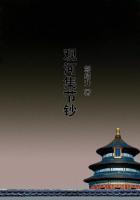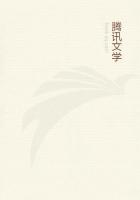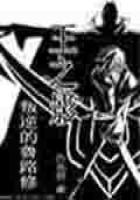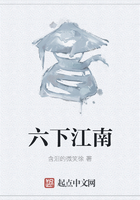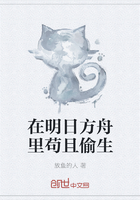The same auspicious fate that prompted those bibliomaniacal monks to hide away manuscript treasures in the cellars of their monasteries, inspired Poggio Bracciolini several centuries later to hunt out and invade those sacred hiding-places, and these quests were rewarded with finds whose value cannot be overestimated. All that we have of the histories of Livy come to us through Poggio's industry as a manuscript-hunter; this same worthy found and brought away from different monasteries a perfect copy of Quintilian, a Cicero's oration for Caecina, a complete Tertullian, a Petronius Arbiter, and fifteen or twenty other classics almost as valuable as those I have named. From German monasteries, Poggio's friend, Nicolas of Treves, brought away twelve comedies of Plautus and a fragment of Aulus Gellius.
Dear as their pagan books were to the monkish collectors, it was upon their Bibles, their psalters, and their other religious books that these mediaeval bibliomaniacs expended their choicest art and their most loving care. St. Cuthbert's ``Gospels,'' preserved in the British Museum, was written by Egfrith, a monk, circa 720; Aethelwald bound the book in gold and precious stones, and Bilfrid, a hermit, illuminated it by prefixing to each gospel a beautiful painting representing one of the Evangelists, and a tessellated cross, executed in a most elaborate manner. Bilfrid also illuminated the large capital letters at the beginning of the gospels. This precious volume was still further enriched by Aldred of Durham, who interlined it with a Saxon Gloss, or version of the Latin text of St. Jerome.
``Of the exact pecuniary value of books during the middle ages,'' says Merryweather, ``we have no means of judging. The few instances that have accidentally been recorded are totally inadequate to enable us to form an opinion. The extravagant estimate given by some as to the value of books in those days is merely conjectural, as it necessarily must be when we remember that the price was guided by the accuracy of the transcription, the splendor of the binding (which was often gorgeous to excess), and by the beauty and richness of the illuminations. Many of the manuscripts of the middle ages are magnificent in the extreme;sometimes inscribed in liquid gold on parchment of the richest purple, and adorned with illuminations of exquisite workmanship.''
With such a veneration and love for books obtaining in the cloister and at the fireside, what pathos is revealed to us in the supplication which invited God's blessing upon the beloved tomes: ``O Lord, send the virtue of thy Holy Spirit upon these our books; that cleansing them from all earthly things, by thy holy blessing, they may mercifully enlighten our hearts and give us true understanding; and grant that by thy teachings they may brightly preserve and make full an abundance of good works according to thy will.''
And what inspiration and cheer does every book-lover find in the letter which that grand old bibliomaniac, Alcuin, addressed to Charlemagne: ``I, your Flaccus, according to your admonitions and good will, administer to some in the house of St. Martin the sweets of the Holy Scriptures; others I inebriate with the study of ancient wisdom; and others I fill with the fruits of grammatical lore. Many I seek to instruct in the order of the stars which illuminate the glorious vault of heaven, so that they may be made ornaments to the holy church of God and the court of your imperial majesty; that the goodness of God and your kindness may not be altogether unproductive of good. But in doing this Idiscover the want of much, especially those exquisite books of scholastic learning which I possessed in my own country, through the industry of my good and most devout master, Egbert. Itherefore entreat your Excellence to permit me to send into Britain some of our youths to procure those books which we so much desire, and thus transplant into France the flowers of Britain, that they may fructify and perfume, not only the garden at York, but also the Paradise of Tours, and that we may say in the words of the song: `Let my beloved come into his garden and eat his pleasant fruit;' and to the young: `Eat, O friends;drink, yea, drink abundantly, O beloved;' or exhort in the words of the prophet Isaiah: `Every one that thirsteth to come to the waters, and ye that have no money, come ye, buy and eat: yea, come buy wine and milk, without money and without price.' ''
I was meaning to have somewhat to say about Alcuin, and had intended to pay my respects to Canute, Alfred, the Abbot of St.
Albans, the Archbishop of Salzburg, the Prior of Dover, and other mediaeval worthies, when Judge Methuen came in and interrupted the thread of my meditation. The Judge brings me some verses done recently by a poet-friend of his, and he asks me to give them a place in these memoirs as illustrating the vanity of human confidence.
One day I got a missive Writ in a dainty hand, Which made my manly bosom With vanity expand.
'T was from a ``young admirer''
Who asked me would I mind Sending her ``favorite poem''
``In autograph, and signed.''
She craved the boon so sweetly That I had been a churl Had I repulsed the homage Of this gentle, timid girl;With bright illuminations I decked the manuscript, And in my choicest paints and inks My brush and pen I dipt.
Indeed it had been tedious But that a flattered smile Played on my rugged features And eased my toil the while.
I was assured my poem Would fill her with delight--I fancied she was pretty--I knew that she was bright!
And for a spell thereafter That unknown damsel's face With its worshipful expression Pursued me every place;Meseemed to hear her whisper:
``O, thank you, gifted sir, For the overwhelming honor You so graciously confer!''
But a catalogue from Benjamin's Disproves what things meseemed--Dispels with savage certainty The flattering dreams I dreamed;For that poor ``favorite poem,''
Done and signed in autograph, Is listed in ``Cheap Items''
At a dollar-and-a-half.

